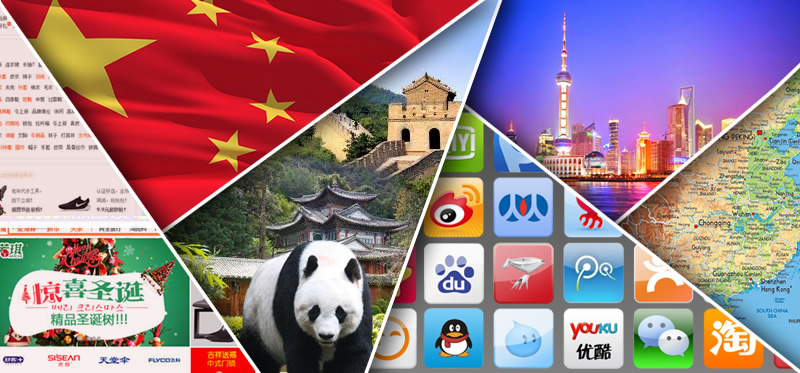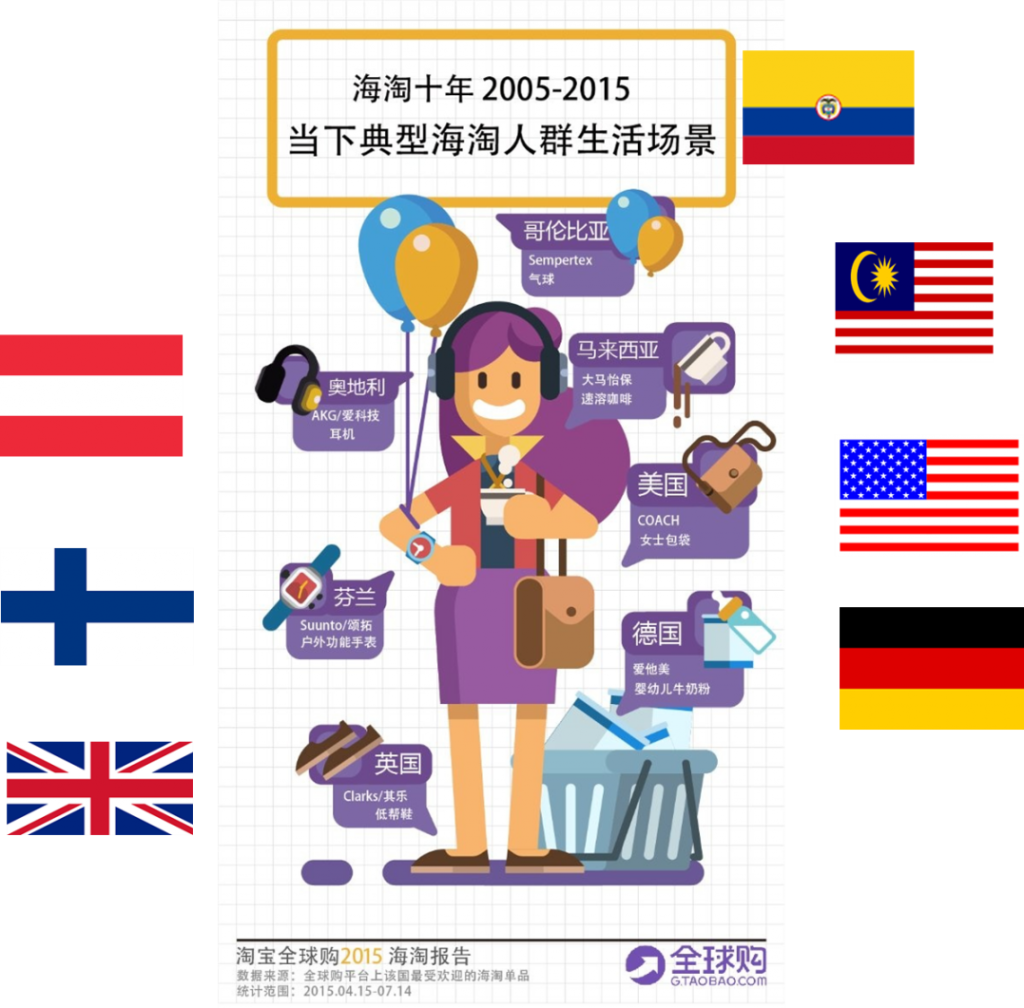China offers huge opportunities for international businesses, but it is important to understand the unique Chinese internet landscape, language, culture and present challenges when running a business in China.
Today we will highlight some of the common misconceptions and mistakes and offer some essential tips to ensure your entry into the Chinese market will be a success.
Tip 1: Use Mandarin- Simplified Chinese for Targeting China
Does everyone speak Chinese in China? This is one of the most common misconceptions. To answer this question we have to know a bit more about the culture. There are 56 ethnic groups in China and over 80 languages are used. But as the majority of Chinese people are Han people taking around 90% of the population, most of time when we talk about Chinese, we refer to the Han language. Further down the line, there are 7 Han dialects, in which Mandarin is the most spoken one and used as official language in China. Since last century the government had been encouraging the whole nation to use Mandarin to eliminate the communication barriers between different regions.
If you are investing in China, Mandarin is the language you should focus on. However, this is not the end of the answer; beware of the written language too. Everything is written in simplified Chinese in mainland China; as the name suggests, it is a simplified version of the written language.
Tip 2: East Coast Offers the Best Opportunities
Targeting China, but which part of China?
When we talk about China, we often take it as a whole and forget about the size of China, which is nearly equivalent to the size of the whole Europe. Each region is a province and has its own unique culture and different levels of economic development. It is essential to narrow your target area by region, especially for paid search activities.
Most of people would be able to name a few regions such as Beijing, Shanghai, Guangdong, etc, there are many more. In general, the east coast is most developed areas in China with more buying power and better internet access.
%GC_SERVICE=2294%
Tip 3: Local Hosting can Improve Loading Speed
The Internet speed is slow in China. According to the Akamai Global Average Connection Speeds and Global Broadband Connectivity report in 2015, on average the speed is around 3.4 MBPS ranking as 90thposition globally. The average speed in the UK is 3 times faster. The slow speed leads to longer loading time, and for websites hosted abroad, it can be worse. For instance, if your website is hosted in the US, it may take minutes to load up the page and users just won’t wait that long to see your content. Local hosting is recommended, merely because it offers better speed in China. However, it isn’t always that straight forward, so you can always consider hosting in Hong Kong instead.
Tip 4: Use Baidu, Haosou and Sogou for Paid Search Campaigns
Google gave up its battle in mainland China back in March 2010, only leaving some business in HK. Although there have been some rumours of Google returning to mainland China next year with its App store, it is unknown whether Google can shake up the market.
For now, the market is mainly dominated by 3 local search engines – Baidu, Haosou and Sogou.
Unfortunately, your knowledge of Google can’t be directly transferred to local search engines, from the algorithm, ranking factors to the paid search editorial rules, match types and search volumes, everything is different.
Paid search plays a vital role in ensuring your website is visible in search results, as SEO doesn’t work alone in China.
Tip 5: Use Weibo and WeChat for Social Media Projects in China
It’s well-known that the great Chinese firewall blocks many foreign websites, including Facebook, Twitter, YouTube and many more. So it’s time to remove the western social share buttons on your site and replace them with local options.
Weibo and WeChat are two main social media networks you have to focus on. Weibo is very similar to Twitter, and WeChat is a combination of Facebook and What’s app. Both networks are widely used by many businesses in China.
Tip 6: Mobile traffic is Huge and Can’t be Ignored in China
Mobile penetration is over 88% in China, which is the largest mobile market globally. On average each person spends 158 minutes per day browsing the internet on mobile. The younger generation born in 90s spends over 3 hours using mobile internet daily.
If you don’t have a mobile site or app, think twice before you enter into China. The purpose of a mobile site is not only about capturing mobile traffic, but also assist in solving the slow interne issues. Shopping and payment on mobile is growing rapidly in China; by June 2015, over 374 million internet users purchased online.
Tip 7: Try to Adopt a Chinese-Style Website Design
If you have visited some Chinese websites, you might have noticed that they are much busier, more colourful and more cluttered than western sites. There are several reasons why:
- Ranking Factors: The quantity of the links matters more than the quality at present
- The more content you have, the more time people stay on your site – increasing the likelihood of a conversion
- Chinese people love the lively hustle and bustle atmosphere of a busy site.
Take Chinese ecommerce giant Taobao as an example. It’s full of glossy images and a busy layout and its rich content make it more than just an ecommerce site, but a social network and a place to find ideas and solutions.
On the other hand, eBay and Amazon are neat, but not capture the imagination of customers in the same way.
Tip 8: Always use Localised Content
There are other parts of the world where Chinese is spoken, however, if you acknowledge the difference between British English and American English, it is the same when it comes to Chinese. The same McDonald’s happy meal is named differently in Hong Kong, Taiwan and mainland China.
Tip 9: Country of Origin is Important
For many reasons, brand and country of origin means quality to Chinese customers so Chinese customers favour products made overseas. The number consumers purchasing abroad through ecommerce platforms is increasing daily as they seek for original, authentic products.
Below is a typical Chinese customer taken from the Taobao Shopping abroad report for the last ten years. Although we are used to seeing made in China on many products, Chinese consumers don’t want this – so make sure you highlight your product’s country of origin clearly in all communication.
Tip 10: Local Payment is Preferred, as is Mobile Payment
The addictive online buying habit of Chinese consumers has certainly accelerated a payment revolution in China. Mobile payment is very advanced and widely used in China, thanks to the efforts from the key players, Alipay and WeChat Pay.
Mobile payment has penetrated into the daily shopping and daily life, even for the older generations. Alipay QR codes are everywhere in the supermarkets, and WeChat pay has signed a deal with French supermarket chain Carrefour for 237 shops across the country. If you are trading in China, mobile payment should be a priority.
There is a lot to be gained by entering the Chinese market, but only by adapting the needs and ways of this vast and unique country will you reap the rewards of your efforts.













